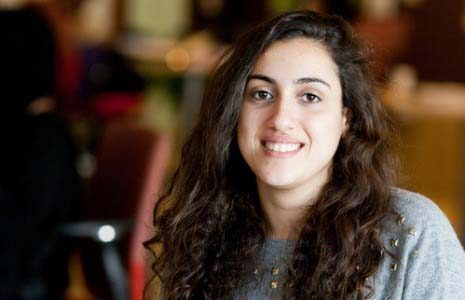
By Mai Akkad
In some ways, Nada Arakji is a typical 18-year-old college freshman. She’s studying business at Carnegie Mellon University and enjoys reading, listening to music and hanging out with her friends.
But as one of the first female Qatari athletes to compete in the Olympics, she’s also grown accustomed to signing autographs for her classmates, coaching a 10-member swimming squad at CMU-Q and carving out time to train six days a week.
“It was an honor to represent my country and to be the first Qatari female swimmer to make history,” Arakji told Doha News in an exclusive interview.
Olympic dreams
Last year, Qatar became one of the last countries in the world to send female athletes to the Olympics, which took place during the summer months in London. There, Arakji along with field sprinter Noor Al Malki, shooter Bahiya Al Hamad and table tennis player Aya Majdi, became the first Qatari women to have competed in the games since the country began participating in 1984.
According to her university:
“Arakji’s appearance in London has garnered significant domestic and regional interest, as the teenager has already broken some of the stereotypes associated with Arab women. A homegrown celebrity, Arakji — who has been swimming since the age of nine — has become a symbol for women’s empowerment.”
Arakji, a wildcard entry into the games, made her first breakthrough onto the international swimming scene during the 2011 Arab Games. A few months later, the daughter of former Al Sadd SC footballer Mohamed Wafaa Arakji learned she had been invited to compete in the Olympics.
“It was an incredible experience. Just being able to compete with world champions, it was so exciting,” said the swimmer, who took fourth place in her heat. “I set myself a goal to improve my timing and that in itself was a gold medal for me,” she said.
Not only did she get to compete against world champions, but she also got to chat with them. Arakji said the cherry on top of the entire London experience was meeting Olympian and four-time world champion Federica Pellegrini, her childhood idol.
“I did a swimming presentation on her in year 10 for my English class. So to be able to meet her while we were training in the aquatic center was amazing,” the teen said.
Looking forward
For the next three and a half years, Arakji’s Olympic-sized challenge will be balancing school and swimming. Even though she sets aside time to train almost every day of the week, she said her priority is still on her studies.
“Swimming is important for me and (so is) education,” she said. “So I finish my homework on time, study for exams and still go to training. So I do manage to balance between the two.”
And after graduation? Hopefully, Rio de Janeiro.
“When I graduate, that would be the time when I go to the 2016 Olympics,” Arakji said. “It would be really cool if I go because in the 2012 Olympics that is when I went to university and 2016 is when I graduate, so it is like perfect timing.”
Thoughts?
Credit: Photo by Steve MacNeil, Web Manager, Carnegie Mellon University in Qatar







